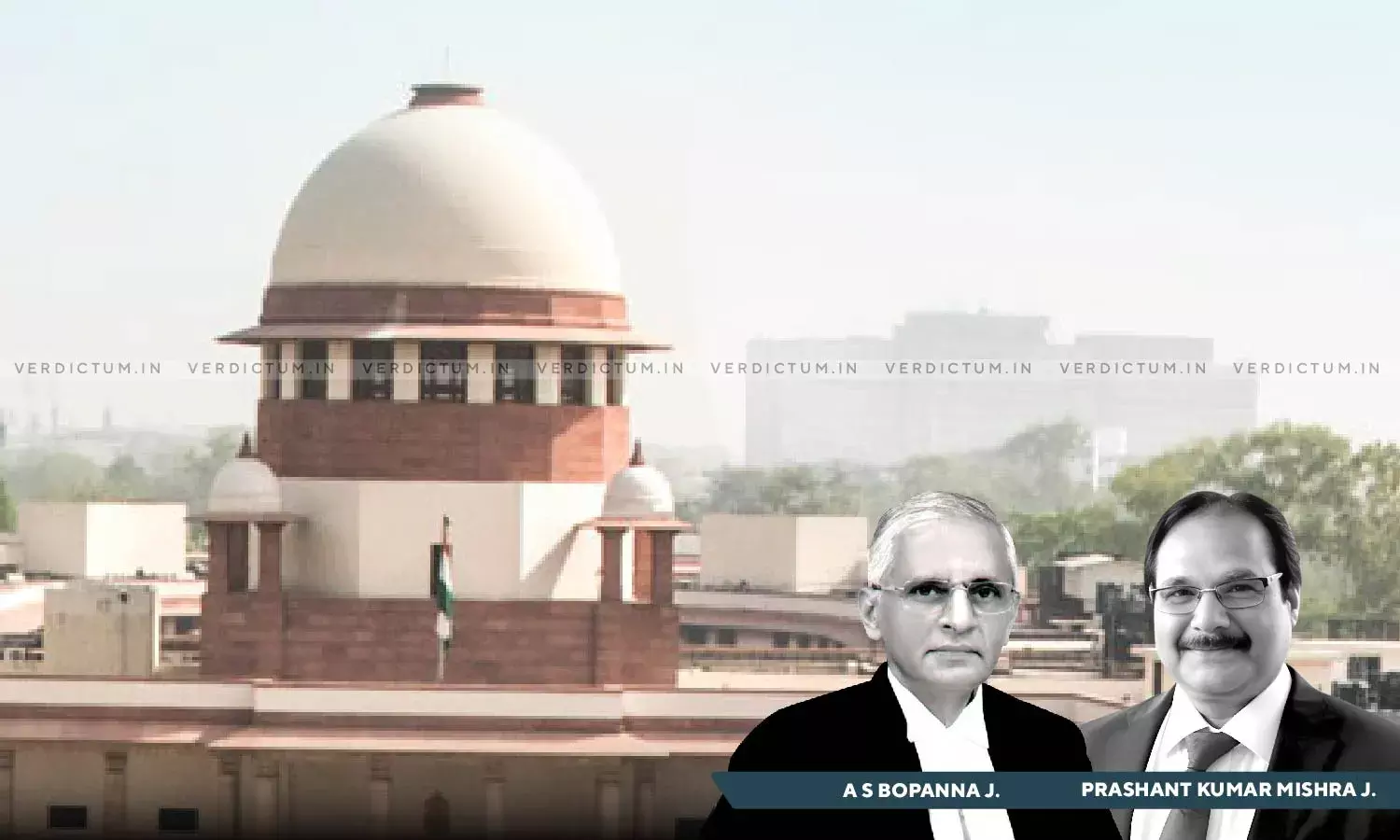Complaints Under Section 138 Of NI Act Are Not Time-Barred: Supreme Court While Setting Aside High Court's Order

The Supreme Court held that the complaints under Section 138 of the NI Act were not time-barred allowing an appeal challenging a judgment passed by the Andhra Pradesh High Court which quashed criminal proceedings against Respondent No. 2 related to complaints filed against the accused under Section 138 and 142 of the Negotiable Instruments Act (NI Act) for dishonoring a cheque.
A two-judge bench of Justice A.S. Bopanna and Justice Prashant Kumar Mishra explained that the promissory note indicated a repayment date of December 2016, and the cheque was issued in April 2017, which was within the limitation period and that there was no need to exercise the power under Section 482 CrPC to quash the complaint. The Court said, “Therefore, in the instant case not only the amount was a legally recoverable debt which is evident on the face of it, the complaint was also filed within time. Hence there was no occasion whatsoever in the instant case to exercise the power under Section 482 to quash the complaint.”
The appellant and Respondent No. 2 knew each other, and Respondent No. 2 borrowed Rs 20,00,000 from the appellant for his son's education and domestic expenses. A promissory note was executed, specifying the repayment terms, including a condition for full repayment by December 2016. When Respondent No. 2 failed to meet this condition, he issued a cheque for partial repayment in April 2017, but it bounced due to insufficient funds. Legal notices and replies were exchanged, and the appellant filed complaints under Section 138 of the NI Act in July 2017.
Respondent No. 2 had filed petitions to quash these proceedings under Section 482 of the Criminal Procedure Code (CrPC) before the High Court, arguing that the complaints were time-barred, and the debt was not legally recoverable.
Advocate Sanchit Garga appeared for the Appellant and Senior Advocate Sidharth Luthra appeared as Amicus Curiae on behalf of Respondents.
The appellant's counsel argued that the promissory note constituted a valid contract, making the complaint under Section 138 of the NI Act maintainable, even if the debt was time-barred. They asserted that a promise made by issuing a cheque is governed by Section 25(3) of the Indian Contract Act, and the limitation act only bars the remedy, not the right.
The issue before the Court was whether the complaints under Section 138 of the NI Act were maintainable when the debt is time-barred.
The Supreme Court discussed two key decisions of S. Natarajan vs. Sama Dharman & Anr., (2021) 6 SCC 413 and A.V. Murthy vs. B.S. Nagabasavanna, (2002) 2 SCC 642. The Court highlighted that these decisions emphasized the question of whether a debt is time-barred and non-recoverable should be decided based on evidence and is a mixed question of law and fact. The Court said, “It is only in cases wherein an amount which is out and out non-recoverable, towards which a cheque is issued, dishonoured and for recovery of which a criminal action is initiated, the question of threshold jurisdiction will arise.”
The Court also noted that the power of the Magistrate under Section 322 of CrPC is an important aspect to be considered. The Court mentioned a recent decision in the case of Expeditious Trial of Cases under Section 138 of NI Act (2021 SCC Online SC 325) that discussed the Magistrate's power in such cases.
The Court stated that whether a debt is legally enforceable under Section 25(3) of the Indian Contract Act should be examined in light of the Explanation to Section 138 of the NI Act, which specifies that only legally enforceable debts are covered.
The Court then examined the facts of the case and found that the complaint was not time-barred. The Court set aside the High Court's order and restored the complaints to the Trial Court, directing expedited proceedings with a six-month time frame for resolution.
Accordingly, the Court allowed the appeals.
Cause Title: K. Hymavathi v. The State of Andhra Pradesh & Anr., [2023INSC811]
Click here to read/download Judgment


